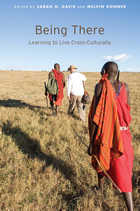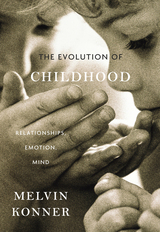
How can an academic who does not believe evil spirits cause illness harbor the hope that her cancer may be cured by a healer who enters a trance to battle her demons? Whose actions are more (or less) honorable: those of a prostitute who sells her daughter’s virginity to a rich man, or those of a professor who sanctions her daughter’s hook-ups with casual acquaintances? As they immerse themselves in foreign cultures and navigate the relationships that take shape, the authors of these essays, most of them trained anthropologists, find that accepting cultural difference is one thing, experiencing it is quite another. In tales that entertain as much as they illuminate, these writers show how the moral and intellectual challenges of living cross-culturally revealed to them the limits of their perception and understanding.
Their insights were gained only after discomforts resulting mainly from the authors’ own blunders in the field. From Brazil to Botswana, Egypt to Indonesia, Mongolia to Pakistan, mistakes were made. Offering a gift to a Navajo man at the beginning of an interview, rather than the end, caused one author to lose his entire research project. In Côte d’Ivoire, a Western family was targeted by the village madman, leading the parents to fear for the safety of their child even as they suspected that their very presence had triggered his madness. At a time when misunderstanding of cultural difference is an undeniable source of conflict, we need stories like these more than ever before.

This book is an intellectual tour de force: a comprehensive Darwinian interpretation of human development. Looking at the entire range of human evolutionary history, Melvin Konner tells the compelling and complex story of how cross-cultural and universal characteristics of our growth from infancy to adolescence became rooted in genetically inherited characteristics of the human brain.
All study of our evolution starts with one simple truth: human beings take an extraordinarily long time to grow up. What does this extended period of dependency have to do with human brain growth and social interactions? And why is play a sign of cognitive complexity, and a spur for cultural evolution? As Konner explores these questions, and topics ranging from bipedal walking to incest taboos, he firmly lays the foundations of psychology in biology.
As his book eloquently explains, human learning and the greatest human intellectual accomplishments are rooted in our inherited capacity for attachments to each other. In our love of those we learn from, we find our way as individuals and as a species. Never before has this intersection of the biology and psychology of childhood been so brilliantly described.
"Nothing in biology makes sense except in the light of evolution," wrote Dobzhansky. In this remarkable book, Melvin Konner shows that nothing in childhood makes sense except in the light of evolution.
READERS
Browse our collection.
PUBLISHERS
See BiblioVault's publisher services.
STUDENT SERVICES
Files for college accessibility offices.
UChicago Accessibility Resources
home | accessibility | search | about | contact us
BiblioVault ® 2001 - 2024
The University of Chicago Press









